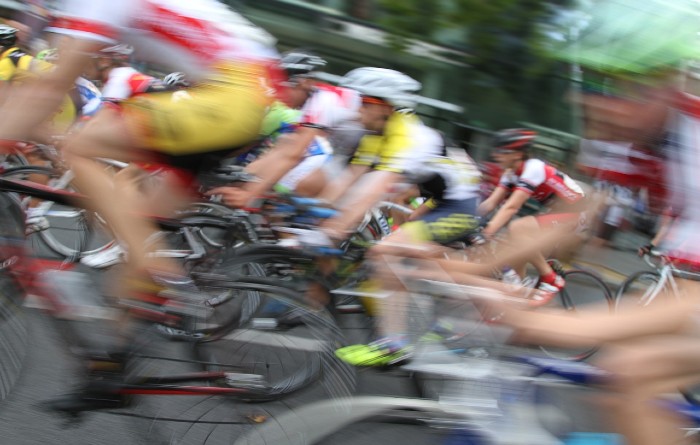‘Elite cycling has a safety problem’ says report
Elite cycling probably hasn’t seen safety as among its top 5 list of challenges, certainly not to the level of attention around doping and diversity, for instance. But a new report from Bayes Business School (formerly Cass) and Dublin City University (DCU) says there is a profound safety problem at the highest level of the sport.
In recent years there have been numerous high profile incidents in pro cycling that have endangered the lives of cyclists, fellow competitors and spectators on the road and the track, but with relatively little response on how to improve safety.
Compared to sports like Formula 1, which created the FIA Institute in 2004 to enhance development of new and improved safety technologies, the UCI makes no mention of safety in its corporate values statement, mission statement or vision statement, says the new study. Likewise there is no comparable Director of Safety role at board level.
Ostensibly this is a cycle sport issue and nothing to do with cycle product?
Aside from the implicit message that crashing in cycling is inevitable and how that filters down to cycling in general, the report notes equipment and product failure. It singles out the Australian Cycling Olympic incident that saw one of its Olympian’s handlebars “snap clean off during competition”.
The authors also point to the use of ISO 4210 standards as the minimum safety requirements for equipment certification by the UCI which “means it has absolved itself of any formal safety critical inspection duties, or the setting of any specific and prescriptive safety standards”.
Dr Cormac Bryce, a Senior Lecturer in Insurance and Risk at Bayes, said: “Put simply, elite cycling has a safety problem, and the issue has recently found itself central to discussions of professional cycling due to a crash at the 2022 Commonwealth Games Track event that saw numerous riders and bikes enter the crowd at high speed. Other incidents include Stage 1 of the 2023 Vuelta a España being conducted in the dark, the cancellation of the CIC-Tour Feminin International des Pyrénées 2023 for safety concerns, and the tragic death of cyclist Gino Mader at the Tour De Suisse.
“To shed light on this area, we are the first to investigate safety within elite cycling by applying safety culture theory to the now infamous Australian Cycling Olympic incident that saw Alex Porter’s handlebars snap clean off during the competition. The results reveal a concerning lack of adherence to rules, the existence of light-touch regulation, and inadequate management safety attitudes. As a result, there is a need for immediate improvement at a governing level, as there are distinct parallels between the incident and high-profile failures in other industries. We consider this paper as the foundation for new and exciting academic research in this area as those conversations evolve.”
Professor Michael Dowling, Professor of Finance at DCU Business School and a co-author of the paper, said: “Our study unearths a systemic issue that goes beyond the realm of sports and penetrates the corporate world: the notion that safety can take a back seat in the pursuit of performance or profit. From the track to the boardroom, the lessons are clear—when safety culture is not fundamentally woven into an organisation’s DNA, the ramifications can be catastrophic. The risks faced by elite cyclists parallel those in high-stakes industries, like oil and gas, where lapses in safety protocols can lead to disaster. This research serves as a wake-up call for all sectors, calling for a renewed commitment to safety governance. It’s not just about cyclists; it’s about reimagining how we prioritise safety in every facet of life.”
There’s more on the report here: The road to olympic failure is paved in poor risk management – ScienceDirect
Image by Dietmar Silber from Pixabay



